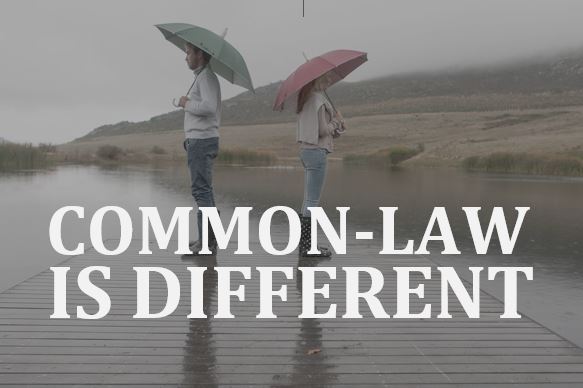
“My common-law partner just cheated on me, so we’re breaking up. Will he still get half the house, even though I’m the one who put up the down payment and paid most of the mortgage?”
It depends. If the house was jointly owned – so both names are on the deed – the likelihood is that he will, in fact, get half the house, regardless of his behaviour or how much more you paid over the course of the ownership.
When two people are married, certain property rights kick in. On separation or death, a spouse is allowed to ask the court for an equalization of net family property. This means that the parties split half of the growth of the value of assets from the date of marriage to the valuation date which is either the date of separation were the date of death. (There is a third opportunity to equalize but it’s rarely triggered.)
However, common-law spouses in Ontario do not enjoy that same right to equalize net family properties.
When common-law parties separate they are entitled to receive their own property without sharing its value unless it was a jointly owned property. This applies to property like real estate or a bank account. A common-law spouse is not entitled to receive the value of the other spouse’s property by right. A common-law spouse is only entitled to the other spouse’s property if it is given or inherited or there is some other voluntary and conscientious transfer of title.
The exception to the common-law rules
The exception to this is something called a constructive trust or an unjust enrichment.
The unjust enrichment is the claim and constructive trust is the remedy.
If a common-law spouse contributed to the other spouse’s property by either working the land, building a house, making a renovation to a building or paying on the mortgage (or other value-added contributions to property), can claim a return of the benefit imparted to the owner. The test for this is that a defendant must have had a benefit to the plaintiff’s detriment without a legal reason for the benefit. A legal reason for the benefit may be that the labour was paid in wages or the use of the property was paid in rent. It does not apply only to common-law spouses. The same claim and remedy are available to people outside of a common-law relationship. A brother who helps a sister with a mortgage or help build a house for a neighbour, an unjust enrichment can arise.
Taken to another level, common-law spouses are now beginning to benefit with what has come to be called a “joint family venture”. This legal concept essentially is to make a common-law relationship somewhat equivalent to a marriage in terms of property rights. The court has identified very similar traits in the joint family venture as is seen in the equalization of net family property.
There are certain drawbacks to this approach because there are no identifiable dates from which to start the calculation, but a separation date is usually as clear as in the case of a marriage.
The bottom line
For most common-law couples who jointly own real estate or other substantial assets, they will in fact be split 50-50. In fact, it is not really a legal dispute to take one’s own property when a relationship ends. There are situations when this may not be automatic.
